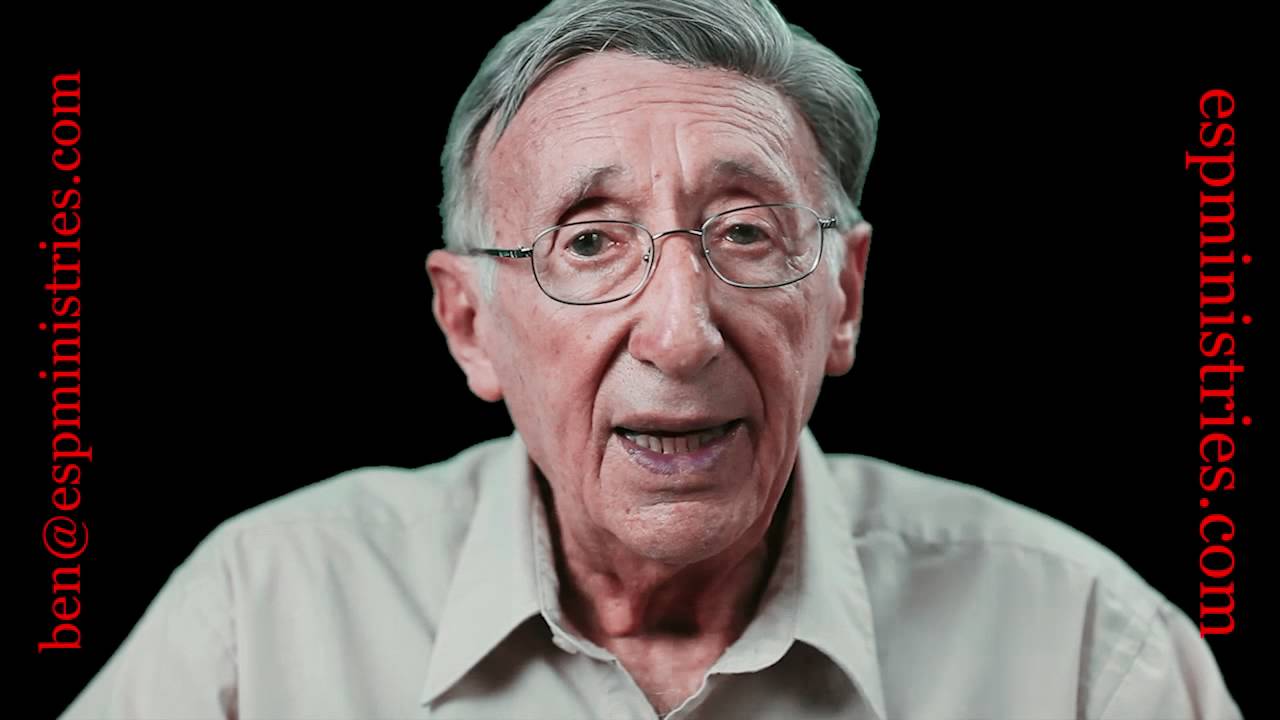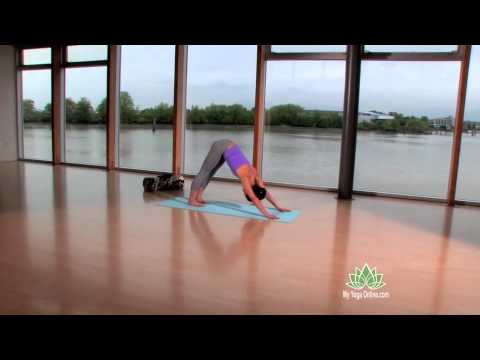Reiki :
Part 1: Exposing the connection between the occult and Reiki.

Part 1: Exposing the connection between the occult and Reiki.

Video Rating: 4 / 5

” Soul Meridian ” by Harvey Summers ~ iTunes download at: itunes.apple.com Power Yoga has developed in many forms both ancient and modern. Power Yoga, developed by Brian Kest has a very concentrated, affective and powerful style. This recording “Soul Meridian’ of flowing meditative music, rich with Indian influences and instrumentation has been composed to be used both as an accompaniment to Yoga practice, meditation and relaxation. The recording is taken from the Harvey Summers Spiritual Vitamins CD release ‘Power Yoga’ The music on the CD blends intricate melodies with deep and mysterious rhythms,it will transport you to the land where Yoga was born and beyond. Music samples can be hear on the website below. www.bluedotmusic.net video created by Robert Nichol RNaudioproductions www.allcast.co.uk Copyright Frank Rodgers bluedotmusic 2009
Video Rating: 4 / 5
Article by Rockeysheen01
Life is a roller coaster ride. Everyday’s routine work has made us work like a robot. It leads to immense stress and tension in life and hence people cannot concentrate on their work that they are supposed to do. They also cannot sleep properly at nights and find it difficult to concentrate on next day’s work. That is why meditation is very important. At first people find it difficult to execute it since it requires a lot of concentration and will power. Therefore, there are certain meditation techniques for beginners, which relieve your mind and body of the rigors of contemporary life and everyday’s strain.
In today’s life every person is looking for a peace of mind and wants to do away with the worldly pressures with the help of external sources like watching television, by medication and by consuming alcohol. All these sources are harmful for the body. Watching television continuously affects your eyesight. Intake of sleeping pills makes you addicted and you suffer from certain side effects. Alcohol is injurious to your body as it intoxicates your mind. What is left with you now is to meditate so that your concentration power gets increased and you become tension and stress free.
For a start, there are easy and simple meditation techniques for beginners. If you follow these techniques, you need not hire any yoga instructor personally and can save your money. Most of these techniques include breathing exercises, listening to any compact disc at your residence and so on. Once you master these ways, you can easily move ahead to learn the advanced type of meditation techniques.
Some easy meditation techniques for beginners
Focused and attentive breathing exercises – This is one of the easiest meditation techniques for beginners. One who just starts practicing meditation can do this breathing exercise. This is nothing but pranayama. At first you have to sit comfortably on a chair, or on your bed or anywhere. You can lean backwards or lie down. Now begin breathing from your nose, keeping your eyes closed. By inhaling and exhaling air, you reach to a good meditative state. If you do it daily, at least once, you can concentrate on anything you do.
Guided Meditation – This is one of the most common meditation techniques for beginners. This is extremely easy to carry out. You just have to insert a meditation CD in your audio player and listen to it carefully. These CDs generate soothing music, which is indeed relaxing. The guide speaks to you and you have to follow the steps carefully and thereby reach a meditative state.
About the Author
This Article on meditation techniques for beginners is constructed by Rockeysheen. He has in-depth knowledge on different issues related to health and contributes his skills writing different topics related to health and meditation techniques, which has left a mark in the industry. For More Information he recommends to visit https://secrets2meditation.com/goto/?url=http://themeditationmind.com/

Free Yoga Here… myyoga.tv Power Vinyasa Yoga for strength is a creative mix level flow designed to work your entire body. This is a great practice for toning the upper body, flexibility, and strength.

www.Entrepreneurs-Edge.com http 206-339-8190 Rate this video and leave a comment with your name, location, and healing request to recieve continuous Reiki healing treatments for one week. You Don’t want to miss this opportunity!
Video Rating: 4 / 5
Article by Richard M. Frost
One of the great benefits of meditation is the wisdom that comes from greater mindfulness. While many self-help guides focus on the attainment of idyllic mental states, or on the manifestation of idealized physical realities, in practice it can be far more relevant to learn how to avoid extreme negativity and all the damage it causes in our lives. Conventional mindfulness practices tell us that suffering is inevitable, but our reaction to it is not. Unfortunately, these practices don’t recognize the full extent of the damage that can be done by negative reactions – whether justified or not. We may never reach nirvana, but we must learn how to avoid self-destruction.
The Failure of the Self-Help Industry to Fully Understand the Danger of Negativity
Popular books like Rhonda Byrne’s The Secret, with their emphasis on creating idealized realities that feature material abundance and happy relationships, have made more people at least ask themselves if their inner, mental activity has some impact on their lives’ external conditions. But all this focus on the attainment of materialistic goals, and the debate that ensues about how realistic it is to expect results from manifestation techniques, does us a disservice.
To be truly free as human beings, we need to master the fundamental lesson that our thoughts and feelings create our reality. However, the most effective – and most valuable – way to learn that lesson is not through striving to acquire more possessions. In the grand scheme of things, it isn’t really that important what sort of car sits in the driveway if you’re not healthy enough to drive it or if you have an accident when you go out on the road. In other words, the avoidance of bad outcomes is a more important goal, albeit a less exciting one.
Mindfulness practitioners are much less concerned with material outcomes than Rhonda Byrne’s wing of the self-improvement industry, and they do a much better job of encouraging us to avoid negative thoughts and emotions. Mindfulness exercises generally all aim to make us more aware of the contents of our minds so we can make better choices, and recognition of the fact that we have a choice is itself a huge breakthrough. Unfortunately, conventional mindfulness practices do not acknowledge the creative power of thoughts and emotions in the physical world. Consequently, they don’t do enough to protect us from the damage that we can inflict upon ourselves if we’re not careful.
How to Become Your Own Self-Insurance Agent
The kind of mindfulness we need is one that doesn’t just become aware of what we’re thinking and feeling – what we’re doing inside – but also shows us the connections between those inner actions and outer results. Those skeptics who dismiss New Age creation principles on the grounds that they are little more than superstitions or magical thinking have no idea how much they are hurting themselves by failing to examine this process. Sadly, the results of the inner creative process, by which thoughts and emotions translate themselves into concrete outer realities, are much easier to see when personal disasters occur. In fact, it was largely through the analysis of bad experiences that I came to understand how I created my own reality.
Negative emotions, partly for reasons of evolutionary biology, tend to be much more powerful and persistent than positive emotions. Rick Hanson refers to this as the “negativity bias.” We all have dark pools in which we like to wallow, and the more time we spend in them the more damage we are going to do – to ourselves and, potentially, to those around us. When a bad thing happens, it is common for us to dwell on it at length, rehashing it in our minds. The emotions generated by these vivid and highly-charged memories can be extremely powerful – enough, in fact, to set in motion creative forces that will bring us more experiences of the same quality. And thus we set ourselves up for a negative snowball effect, with further bad experiences reinforcing the very beliefs and emotions that gave rise to them, and making it even harder to break out of a cycle of negativity and despair. These are the times when, truly, life is a you-know-what.
It continues to puzzle and disappoint me that mindfulness teachers like Rick Hanson – who offer so much genuinely useful advice on attaining healthier mental states – fail to take their awareness to the next level and perceive the outer consequences of poor, uncontrolled thinking. I fully realize that this concept goes against everything we have been led to believe about the nature of reality, but when you really pay attention, and see yourself getting burned over and over again by particular patterns of thought giving rise to real-world problems, then the causal connection can no longer be denied.
Full awareness of the very real damage that can be caused by negativity is the ultimate incentive to manage one’s thoughts and feelings more prudently. It’s all well and good to want to be as highly evolved as the Buddha, but it’s another thing altogether to want to avoid accidents or violent confrontations with other people. Mindfulness, then, can be the ultimate self-insurance policy – the only real way to protect yourself from the worst that life has to offer.
About the Author
The approach to mindfulness suggested here sooner or later leads to one of the thorniest questions in the self-help industry – the issue of blaming yourself for everything that is wrong in your life. Because that problem is in fact a potent example of the power of negativity, and one you might run into yourself, I strongly recommend that you read the following discussion on blaming the victim.
Article by DR. DEAN CROSBY
THE POWER OF CHRISTIAN MEDITATION:Why,How,When
Over six hundred ( right,600) research studies have been conducted at more than two hundred and fifty (250 ) universities and research centers including Harvard, UCLA, and Stanford on meditation. To date these studies have been published in more than one hundred (100) journals which totally debunk the on-going opposition to meditation by some Christians. Here are some of the major benefits these extremely carefully conducted studies have documented:
MEDITATION HAS BEEN PROVEN TO:
* Increase flexible thinking * Increase non-impulsive proactive behavior * Improve decision-making * Increase in memory * Increase in focused attention * Improve the ability to overcome substance abuse and addictions * Improve ethical thinking and behavior * Increase energy and vitality * Create a better functioning cardiovascular system * Create a more balanced physiology * Create a stronger immune system * Improve self-confidence and self-esteem * Create feelings of safety and peace * Create more compassion and empathy for others * Improve interpersonal relations * Increase feelings of happiness and optimism
Meditation has even been successful in treating difficult to cure diseases and medical problems like hyper-activity disorder because of its remarkable ability to decrease stress.
The primary reason that people do not meditate is because they just don’t think they have the time for it.However meditation is so restful it actually saves time in its practitioners schedule by decreasing sleeping time.Specifically,30 minutes of daily meditation will decrease one’s sleep requirements by about one hour.
The primary religious objection to mediation is that non-Christian words are used for the phrase that is repeated to create and sustain the state of relaxation.That’s a simple problem to overcome,just create a Christian statement for your personal use. In fact words can be created to confirm ones spiritual beliefs while targeting a specific problem at the same time thus creating a potent and greatly beneficial spiritual and therapeutic exercise.An example of a beneficial affirmation is: “Jesus fills me with power and peace”.Others will choose to use a few words from a Bible verse which they want to gain greater insight into through relaxed and slow repetition.
Here are the very simple instructions to follow to successfully practice meditation:
1.Go in a room where you will not be distracted by people,pets or phones.2.Sit in a straight back chair.Close your eyes,put your feet on the floor and your hands in your lap.3.Take very deep slow breaths.Breathe in through your nose and then slowly out through your mouth.4. Keep focusing on your breaths by trying to visualize the air going in and out of your nose in the form of a cold weather vapor cloud.5.Continuously silently repeat your affirmation.6.Keep pushing out all other thoughts from your mind,try to concentrate only on your affirmation.
THAT’S AS SIMPLE AS IT IS !
To obtain the maximum benefit,meditate twice a day for 10-15 min.each time during those times of the day when you have time to be alone and are in need of some stress relief.However do not meditate close to your bedtime because it will remove so much of your tiredness that you may have trouble getting to sleep.
The human mind has been created by God so that it can be healed from this very simple natural exercise.Isn’t it tragic that some Christians try to discredit such a marvelous and simple tool for mental and physical health merely because those of other faiths also use it?
About the Author
Dr. Dean Crosby is a published author,instructor in New Testament studies, and Christian therapist. He holds a bachelors degree in communication,a masters degree in counseling,and a doctoral degree in psychology.He is the founder and director of the Christian Caring Center,a non-profit internet counseling agency.(https://secrets2meditation.com/goto/?url=http://drdeancrosby.tripod.com/christiancaringcenter/index.html) Dr. Crosby can be personally contacted at drdeancrosby@yahoo.com but information about his counseling center should be requested at appointments@christiancaringcenter.every1.net